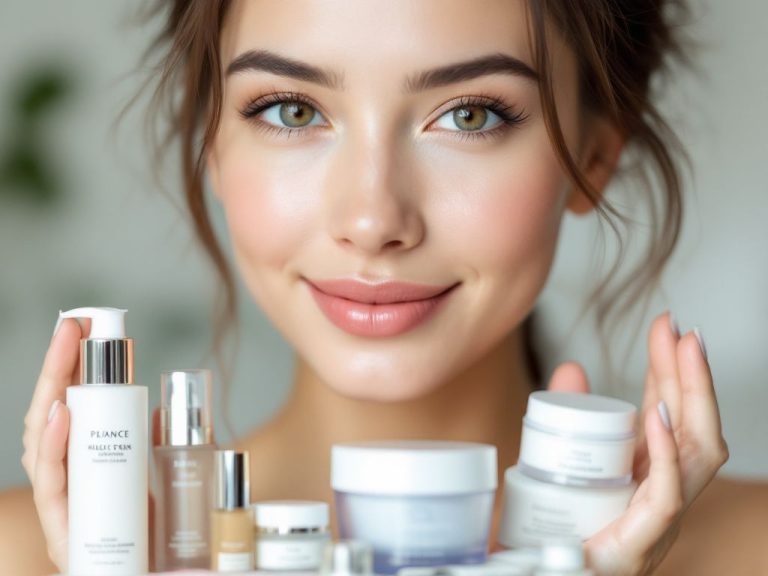Ever notice how your face tends to declare its independence the moment the seasons change? Whether it’s erupting with spots in the sizzling summer heat or going into oil overdrive when the winter chill hits, seasonal changes can wreak havoc on your skin. Why does this happen, you ask? Well, hold onto your hats, folks, because we’re going to dive into the nitty-gritty of summer acne and winter acne. You’ll not only get savvy to why your skin might be playing these sneaky tricks on you, but you’ll also find practical tips to keep your complexion clearer and happier, season by season.
Table of Contents
ToggleThe Heat is On: Understanding Summer Acne
Ah, summer—those glorious months of back-to-back sunshine, beach days, and… yup, extra oil production on your skin. With temperatures rising, our sweat glands work overtime. This increased sweat mixed with bacteria can lead to more frequent breakouts. More specifically, in the summer, it’s the trifecta of heat, humidity, and sun exposure that’s to blame.
Why Summer Acne Strikes
**1. Excessive Sweat and Oil:** Warmer weather ramps up the production of both sweat and sebum (that’s just a fancy word for your natural skin oils) which can lead to clogged pores if not cleaned properly. As you sweat more, the salt in the sweat also tends to mix with oils, causing blockages.
**2. Humidity Hurts:** Humidity might make your hair go limp, but it’s rough on your skin, too. It creates an ideal breeding ground for propionibacterium acnes, the bacteria known to cause acne. More humidity means more moisture, and when it’s trapped with oil and dead skin cells, it’s recipe for some serious breakout potential.
**3. Increased Sun Exposure:** Ever thought that a little sun might help ‘dry out’ acne? Yeah, I’ve been there too, thinking that was the golden ticket to clear skin. But too much sun exposure can actually trigger more oil production—plus the dead skin that accumulates can plug up those pores even further. And let’s not forget the possibility of sunburn, which leads to its own set of problems.
Managing Your Summer Skin

**Keep Things Clean:** Wash your face twice a day, but don’t go overboard. Trust me, no need to scrub away every five minutes—that can do more harm than good. Opt for a gentle, foaming cleanser to help lift dirt and remove excess oil without stripping your skin dry.
**Lightweight Moisturizer is Your Friend:** Look for something lightweight and non-comedogenic (fancy word for: it won’t clog your pores). Gel-based moisturizers are often a good choice for those sweaty months. Just like it’s smart to swap out your wardrobe for cooler options, do the same with your moisturizer.
**Don’t Skip Sunscreen:** That daily SPF isn’t optional in the summer—keep your sunscreen game strong. Go for oil-free, non-comedogenic formulas. And hey, using sunscreens infused with zinc oxide or titanium dioxide can also help minimize breakouts.
Quick Tip:
Resist the urge to wipe sweat off your face with your hands. Always use a clean towel or cloth, as your hands can transfer dirt and oils that exacerbate acne. It’s the little habits that make a big difference!
Winter Wanderland Woes: Understanding Winter Acne
Now onto the winter months, the kind that might make you want to cuddle up indoors with a thick blanket and hot cocoa. Yet, despite the snuggle-fest, winter’s chill invites a different kind of acne nightmare, one often influenced by dry air and indoor heating systems.
Why Winter Acne Flashes Freeze Burns
**1. Dry, Dry, Dry:** Winter air is drier, and when combined with your home’s heating system, reduces moisture from the skin. This dryness can make your skin overcompensate by producing more oil.
**2. Dead Skin Cell Nightmares:** Winter’s dryness contributes to a buildup of dead skin cells. These can clog your pores just the same as extra sebum, providing fertile ground for acne.
**3. Less Hydrated:** Our water intake often drops when the weather is cooler because we’re less thirsty. However, hydrating from within is as important as doing so externally.

Winning the Winter Skincare Battle
**Gentle Exfoliation is Key:** During the winter, using a gentle exfoliator will help remove those pesky dead skin cells and allow your moisturizer to sink in. But don’t over-exfoliate—once or twice a week is typically enough.
**Rich, Creamy Moisturizer:** Opt for thicker moisturizers during this time. Ingredients like hyaluronic acid and glycerin can help keep that dry winter skin at bay by attracting moisture.
**Hydrate, Hydrate, Hydrate:** Yes, we mentioned this before. Keep sipping throughout the day. Herbal teas, if you like them, count towards your water intake and can also be soothing.
Quick Fix:
Invest in a humidifier. It adds moisture to the room and can assist in keeping your skin from drying out—especially when you’ve got the heating blazing indoors.
Seasonal Skincare Highlights
To really bring these tips together, take a look at these targeted actions for both summer and winter acne:
- Cleansing:
- Summer: Use oil-free cleansers.
- Winter: Opt for moisturizing or hydrating cleansers to avoid stripping skin of its thin moisture layer.
- Moisturizing:
- Summer: Gel-based, lightweight formulations.
- Winter: Thick, creamier formulations with hydrating ingredients.
- Exfoliation:
- Balanced use regardless of season but adjust strength. Lighter in winter but slightly more frequently in summer due to excess oil.
- Sunscreen:
- Never compromise with sunscreen in any season—your skin will thank you!
Little Mindfulness Tidbit

Navigating these changes doesn’t have to be daunting. Sometimes, just paying more attention to how your skin reacts can steer you in the right direction. Everyone’s skin is a perfect little snowflake—unique and requiring its own care. It could be because your stress levels, pollution exposure, or skincare routine haven’t made their way into your plan. Take notes when something works (or doesn’t).
**Progress Track:**
- Keep a small skin diary. Note what products you use when flare-ups happen, or when you feel your skin is at zenith. It may help you track down any allergens or repeat offenders in your regimen.
Final Thoughts
At the end of the seasonal shuffle, the clearest path forward is one of consistency and conscious change. Be patient with the process, and don’t be afraid to reach out for expert help if you need it. Products aside, staying hydrated and maintaining a balanced diet, alongside keeping an eye on your seasonal acne triggers, all contribute to healthier skin.
Think of this as your little guide, a friend if you will, in the world of wavering weather and changing skin inclinations. Listen to what your skin is telling you, adjust gently, experiment until the puzzle pieces fit—and whatever you do, don’t sweat the small stuff. Or, in this case, the breakouts! Trust your skin is doing its best, no matter the season.
Frequently Asked Questions
Is Acne Worse in Summer or Winter?
Both summer and winter can worsen acne, but for different reasons. Summer acne is often due to heat, humidity, and sweat, leading to clogged pores, while winter acne can be triggered by dry air and indoor heating, causing skin dryness and irritation[1][4][5).
What Causes Summer Acne Breakouts?
Summer acne breakouts are caused by the combination of heat, humidity, and increased sweat production. This sweat mixes with sebum and dead skin cells, clogging pores and creating an environment where acne-causing bacteria can thrive. Additionally, the use of sunscreen can sometimes clog pores and exacerbate acne[1][3][4).
How Can I Manage Acne Breakouts in the Winter?
To manage winter acne, use a hydrating cleanser, apply a heavier moisturizer to lock in moisture, and limit hot showers. Consider using a humidifier to add moisture to the air in your home. Also, choose products that balance your skin without stripping it of its natural moisture[1][4][5).
What Are the Best Skin Care Practices to Prevent Seasonal Acne Breakouts?
For summer acne, use non-comedogenic sunscreen, wash your face regularly to remove sweat and oil, and opt for lightweight moisturizers. In winter, use a hydrating cleanser, apply a heavier moisturizer, and consider using a humidifier. Adjust your skincare routine according to the season to keep your skin balanced and hydrated[1][3][4).
References







